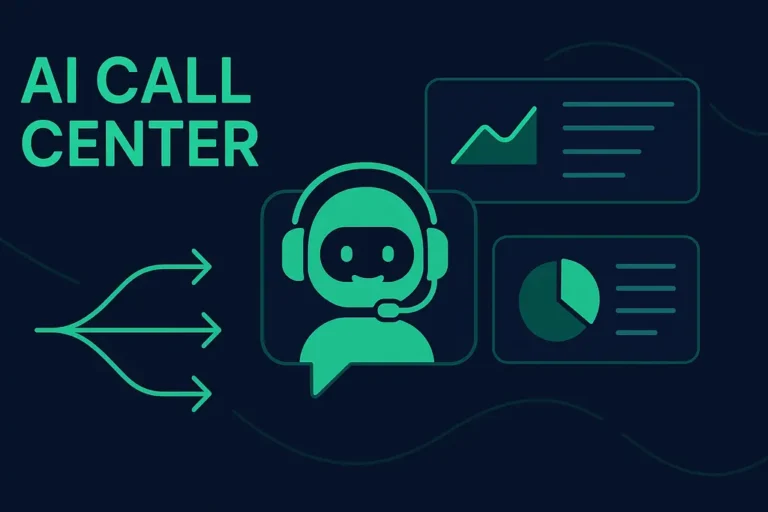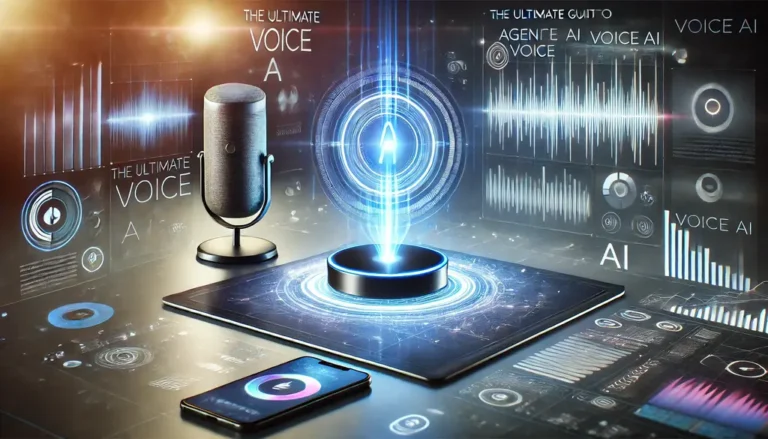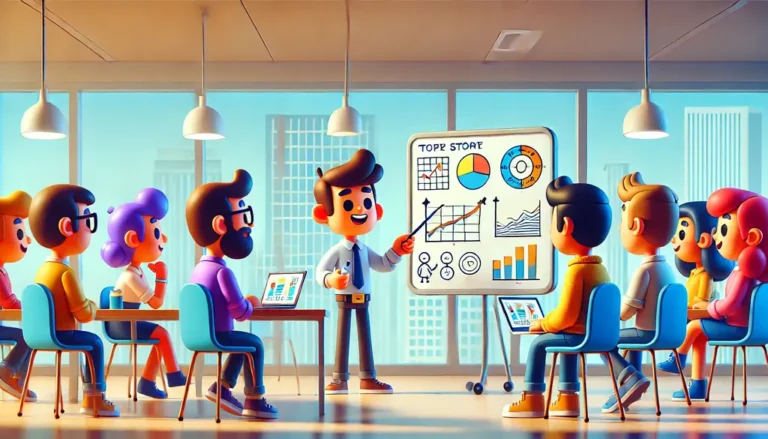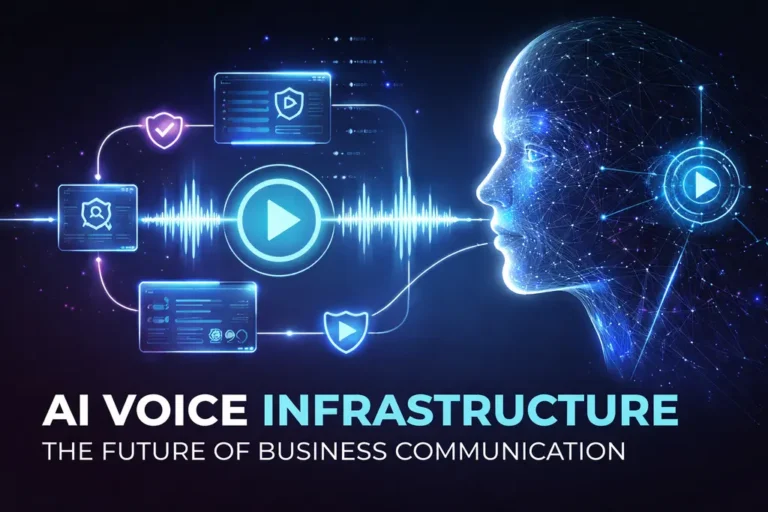Remember how the COVID-19 pandemic just flipped our entire world upside down? One minute, streets were buzzing; the next, they were eerily silent. Businesses pulled down their shutters, and those casual, everyday face-to-face chats? They became a rare, almost nostalgic thing.
It felt like overnight, everyone shifted to talking remotely. And guess what happened? Phone calls to customer service lines skyrocketed. People were scrambling for answers about new safety rules, what services were still running, and just, well, everything.
Honestly, who doesn’t remember being stuck on hold for what felt like an eternity, just listening to that same old elevator music? Infuriating.
Now, pause for a second and imagine this: What if there was this super-smart helper, one that never got tired, never caught a bug, and could handle thousands upon thousands of calls without breaking a sweat?
That is where AI calling steps in. This is a profound technology that could have been an absolute game-changer during those wildly uncertain pandemic months. Let’s dig into how AI calling might have reshaped how we all communicated when COVID-19 took hold.
How AI Calling Could Have Been a True North Star During COVID-19
Let’s be clear: AI calling isn’t just some fancy tech term that buzzes around. It’s a remarkably clever system where computers actually make and receive calls, mimicking human conversation so uncannily that you might not even realize you’re talking to a machine.
These AI setups are brilliant at giving out information, answering all sorts of questions, and even taking care of those simpler tasks right there over the phone. During the height of the COVID-19 pandemic, this capability could have genuinely lifted a monumental weight off those utterly swamped call centers.
Try to picture this scene: You call your bank with a super basic question – something like, “What are your current operating hours?” Instead of being trapped in a digital waiting room for what felt like forever, just hoping to finally speak to a real person, an AI system could have given you that answer in a heartbeat.
And it’s not just simple stuff. The AI could even gently guide you through more complicated processes, like, say, applying for a brand-new credit card, all without you ever needing to speak to a human being. It’s pretty wild, right?
Think of AI calling as having your own personal virtual assistant who works tirelessly on your behalf. This assistant never, ever gets worn out, stressed, or impatient, no matter how many calls come flooding in. In the chaotic environment of a pandemic, where call volumes quite literally exploded, this unflagging helper could have been an absolute blessing. Not just for businesses struggling to keep up, but for all of us anxious customers who want some much-needed answers.
Giving Customer Care a Much-Needed Hug with AI
Let’s face it, customer care truly took a beating during the pandemic. With so many people trying to reach out for help, wait times stretched on and on, and customer frustration levels skyrocketed. This is precisely where AI for customer care could have stepped in and significantly smoothed things over.
So, what does AI for customer care actually mean? It’s about using artificial intelligence to handle customer interactions with real finesse. Instead of needing a human to answer every single call or message, AI could have gracefully managed all the more common, straightforward inquiries.
For instance, let’s say you were fretting about a delivery delay because of COVID-19. You could call or message a company, and the AI would swiftly provide you with the very latest information about your order. No fuss, no long waits.
AI systems are ingenious. They’re designed to understand common questions and spit out remarkably accurate responses. If a customer wanted to know about a store’s specific COVID-19 safety measures, the AI could instantly give them a thorough, detailed answer. This frees up invaluable human agents to tackle the truly complex and nuanced issues. It also ensures customers receive quick, precise information exactly when they need it most.
During the whirlwind of COVID-19, people often needed information right now. AI in customer care could have managed this demand with impressive efficiency. It’s truly like having a super-smart, friendly assistant available 24/7, always ready to lend a hand with any question that pops into your mind.
Making Call Centers Purr Like a Well-Oiled Machine
Call centers? Oh, they faced what can only be described as an absolute nightmare during the pandemic. Call volumes went absolutely parabolic, staff members were getting sick left and right, and literally everyone seemed to need answers immediately. AI for call centers could have genuinely turned that chaos into calm.
AI for call centers is about managing and routing calls with astonishing precision and efficiency. AI can answer those basic, common questions, direct calls to precisely the right department, and even handle appointment scheduling. This clever division of labor means human agents can then pour all their energy into those trickier, more sensitive issues that truly require a personal, human touch.
Imagine calling your healthcare provider with a quick question about COVID-19 testing. Instead of being stuck on hold indefinitely, an AI system could gently guide you through available testing locations, help you seamlessly book an appointment, and even explain the exact procedures to follow before your test.
If your question happened to be more complex or, say, deeply personal, the AI could smoothly transfer you to a human agent who could provide truly detailed and compassionate assistance.
By capably handling the more routine tasks, AI empowers human agents to shine at what they do best. During the sheer bedlam of COVID-19, finding this perfect balance could have kept call centers running smoothly and customers feeling far, far more satisfied.
Kicking Sales into High Gear with Smart AI Calling
Now, even though everyone’s top priority was, quite rightly, staying safe and healthy, businesses still had to sell their products and services to keep their lights on. Sales teams had to adapt super fast to working from home, and many found it incredibly challenging to connect with customers in any meaningful way. This is precisely where AI for sales truly shines and comes into its own.
AI calling can beautifully automate initial sales calls, meticulously follow up on leads, and even expertly set up meetings. Picture an AI system that could call potential customers, provide essential information about products, and then seamlessly schedule appointments for your human sales representatives. During the pandemic, this capability would have been an absolutely invaluable asset for sales teams trying to operate remotely.
Let’s say you’re running a small business and you’re itching to connect with new customers. AI could step in by making those initial contact calls, offering basic information about your products or services, and gauging genuine interest levels. This valuable data could then be effortlessly passed on to your sales team, allowing them to follow up with far more personalized, human-centric interactions. It’s like giving them a head start!
AI for sales is about so much more than just dialing numbers. It’s about making smart, strategic calls. AI systems can analyze vast amounts of customer data to tailor interactions perfectly.
For example, if a customer showed even a flicker of interest in a specific product, the AI could follow up with more detailed, relevant information or even special offers related to that particular item. This personalized approach can significantly boost sales efficiency and truly enhance customer satisfaction, even during incredibly challenging times like a pandemic.
Navigating Pandemic Storms with AI Calling Solutions
COVID-19 threw a whole new playbook of challenges at us, challenges nobody could have predicted. Businesses had to adapt at lightning speed to new remote work models and entirely different customer needs. AI calling could have been an utterly crucial tool in this rapid and often stressful adaptation process.
With AI calling, businesses could have kept their operations humming smoothly, even when human staff were stretched incredibly thin or working from home. AI systems are brilliant at gracefully handling a massive volume of calls and consistently providing accurate, up-to-date information. This means businesses can stay connected with their customers, regardless of where their staff are physically located. That’s a huge win for continuity!
AI is swift to adapt. If new information about COVID-19 safety measures or shifting government regulations emerged, AI systems could be updated literally instantly. This ensures that customers always receive the most up-to-date, accurate information available.
For instance, if there was a sudden change in store hours due to new lockdown measures, the AI could update this information across all customer interactions immediately. Customers calling in would get the correct details without any frustrating delays or outdated information.
AI-powered calling could have significantly helped businesses navigate the uncertain and turbulent waters of the pandemic, enabling them to respond quickly to rapidly changing circumstances and keep their customers well-informed and genuinely satisfied. It’s like having a reliable co-pilot in a storm.
The Bottom Line
The potential of AI in call handling stretches far beyond just managing calls during a global crisis. AI calling, alongside AI for customer care, AI for call centers, and AI for sales, truly represents the undeniable future of business communication as we understand it. These technologies offer a powerful pathway to streamline operations, significantly improve customer satisfaction, and notably enhance sales efficiency across the board.
AI calling could have made a monumental difference during the COVID-19 pandemic, and it will undeniably continue to be a cornerstone of how businesses communicate and serve their valued customers for many years to come.
FAQs – AI Calling
Is AI calling just about replacing human customer service?
Not at all! While AI calling can certainly handle a lot of routine inquiries, its main purpose isn’t to completely replace human agents. Think of it more as a powerful assistant. During times like the pandemic, it could have taken on the sheer volume of simpler questions, freeing up human staff to focus on those more complex, sensitive, or nuanced issues that truly need a personal touch. It’s about making the whole system more efficient and ensuring customers get quick, accurate answers, whether it’s from an AI or a person.
How accurate is AI calling in understanding what customers are saying?
AI calling systems have become incredibly sophisticated! They’re trained on massive amounts of data, which means they can understand a wide range of questions, accents, and even emotional cues to some extent. While no system is perfect, they’re continually learning and improving. During a crisis like COVID-19, when information was changing rapidly, AI could be updated instantly to provide the latest, most accurate details, ensuring customers weren’t left guessing or getting outdated information.
Can AI calling handle more than just basic questions, like sales or complex transactions?
Absolutely! While we often think of AI for basic FAQs, its capabilities stretch much further. For sales, AI can initiate calls, qualify leads, provide product information, and even schedule appointments for human sales reps. For more complex transactions, AI can guide customers step-by-step, answer common questions along the way, and seamlessly transfer the call to a human agent if the situation becomes too complicated or a personal interaction is truly needed. It’s about streamlining processes, not necessarily completing every single transaction solo.
How quickly can businesses implement AI calling, especially in an unexpected crisis?
That’s one of the great strengths of AI calling – it can be implemented remarkably quickly, especially compared to hiring and training a large human workforce. While initial setup and training for specific business needs take some time, AI systems can be scaled up or down almost instantly. This agility is crucial during unexpected events, such as a pandemic, where call volumes surge without warning. It enables businesses to respond quickly to changing customer demands and maintain open communication channels.
Will AI calling continue to be important even after major crises like COVID-19 are over?
Definitely! The pandemic highlighted the vital importance of quick, efficient, and scalable communication. Even in “normal” times, businesses face fluctuating call volumes, customer demands for 24/7 service, and the need to streamline operations. AI calling offers consistent service, reduces wait times, frees up human agents for higher-value tasks, and can personalize interactions. It’s not just a crisis management tool; it’s a fundamental shift in how businesses can communicate more effectively and serve their customers better every single day.








